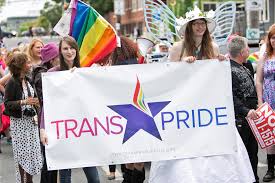
In 2021 the transgender actor Elliot (nee Ellen) Page was featured on the cover of Time magazine, an achievement no longer quite as significant as it was in 1960 or 1992 but still, presumably, a boost to the transgender cause. About the same time, the annual Sports Illustrated swimsuit issue featured a transgender model, Leyna Bloom, which was likewise touted as a breakthrough of some sort. Indeed, in these times there is currently a kind of feedback loop between such depictions of particular communities and the communities’ campaigns for recognition: many of today’s social movements on behalf of identity groups seem to be seeking not just legal enfranchisement – which to a large extent they already have – but cultural parity.
In an attention economy, where your status is measured as much by Likes and retweets as by constitutional freedoms you may not even exercise, transgender people, polyamorists, and other categories aren’t demanding the protection that democracy promises to small minorities. Rather, they’re demanding a collective denial that they are even minorities. That denial can’t really work on the street, where demographic percentages are hard to ignore, but it can certainly be implemented in the media. Political activism used to make its case in courts, legislatures, and voting booths, but it has migrated to Netflix, Instagram, Time, and Sports Illustrated. It’s no longer about equal rights. It’s about equal coverage.
The writer Mark Lilla has complained of how “the lens of identity” has come to necessitate that “the laziest story in American journalism – about the ‘first X to do Y’ – is told and retold.” Other manifestations of this impetus, besides the magazine exposures of Elliot Page and Leyna Bloom, include mandated use of preferred pronouns by universities and HR departments, educational initiatives like the 1619 Project (which emphasizes the role of African slavery in American history), and the enforcement by tech and entertainment organizations of diversity agendas in hiring or casting, all balanced by an obligatory “reckoning” leveled against perceived bastions of non-BIPOC, non-LGBTQ privilege. The old principle of live-and-let-live tolerance has been eclipsed by a new regime of active endorsement, whereby anything less than positive recognition of designated classes is punishable as bigoted discrimination against them. At least, so it goes in the universe of schools, news reporting, social networking, and everywhere else where the screen holds dominion. Everywhere else, that is, but the shrinking precincts of the real world.
Under this ideal, small sects of lobbyists expect that (say) monogamous couples or European historical figures be given no extra notice for their traditional prominence. Representations of non-traditional, non-prominent personal qualities must be at least as foregrounded as any other. Unlike certain religious faiths, who’ve long been resigned to regular reminders of their Otherness (horse-drawn Amish buggies passed on the side of the highway, or Hanukkah observances drowned out by the clamor of Christmas), newer and more strident movements are calling for a fully mediated equivalence beyond just inclusion under the law. Television shows, academic curricula, online ads, email signatures, corporate messaging, press releases, publishing style guides, and magazine covers must all reflect the remade reality.
Wherever you stand on these issues – whether you’re a wholehearted supporter of expanded visibility, or whether you suspect it’s a distortion of what’s actually out there – the fact that they’re deemed more urgent in digital rather than analog form should tell us something. Already we’re used to discussing “what the media won’t tell you about,” or how to “raise awareness about,” things which were formerly addressed as practical concerns rather than mere images; this is just the latest stage in the process. We once wanted integration in our neighborhoods. We’ve ended up looking for difference on our devices. Politics, justice, and progress were once matters of serious public import. They’ve become fodder for showbiz publicity. Once, people hoped their values would win hearts and minds. In 2024, we want our platforms to get clicks and shares. Evolving social standards once made history. Today they generate hype.
